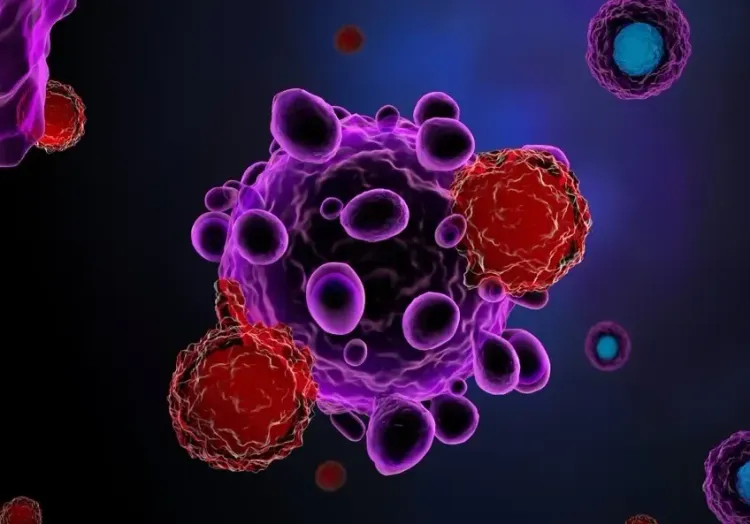Stem Cell Therapy Proven Safe and Effective for Parkinson's Disease

Synopsis
Key Takeaways
- Stem cell therapies show safety in Parkinson's treatment.
- Clinical trials confirm the efficacy of dopaminergic neuron replenishment.
- Minimal adverse effects reported during trials.
- Significant improvements observed in motor function.
- Further research needed for larger sample sizes.
New Delhi, April 17 (NationPress) Stem cell therapies have been identified as a safe and effective approach for managing Parkinson's disease, according to findings from two independent clinical trials.
The studies, published in the journal Nature, examined the application of cells sourced from human induced pluripotent stem cells and human embryonic stem cells.
Parkinson's disease is a neurodegenerative disorder marked by the gradual loss of neurons responsible for producing dopamine, a crucial neurotransmitter.
While existing treatments like l-dopa can ease symptoms in the initial stages, their effectiveness diminishes over time and they are often accompanied by side effects such as dyskinesia (involuntary movements).
The research indicated that cell therapy could restore dopamine-producing (dopaminergic) neurons in the brain, offering a potentially superior treatment with fewer negative side effects.
The first phase I/II trial, conducted by scientists from Kyoto University in Japan, involved seven patients aged between 50 and 69 who underwent transplantation of dopaminergic progenitors derived from human induced pluripotent stem cells into both sides of the brain.
No serious adverse events were recorded throughout the 24-month study, and the transplanted cells successfully produced dopamine without overgrowth or tumor formation, a risk often linked to stem cell therapy.
Furthermore, a reduction in motor symptoms was observed in four of the six participants who continued to the efficacy evaluation without their standard medication, and in five while on medication.
The second phase I clinical trial, led by a team from Memorial Sloan Kettering Cancer Center in the US, assessed the safety of a dopaminergic neuron progenitor cell product called bemdaneprocel, derived from human embryonic stem cells.
Twelve patients, with a median age of 67, received surgical transplantation of bemdaneprocel into the putamen on both sides of the brain.
Five participants were administered a low dose while seven received a high dose.
The cell product was generally well tolerated, with no severe adverse events related to the therapy during the 18-month follow-up.
Importantly, there were no reports of dyskinesia.
Additionally, some improvement in motor function was noted in patients across both the low-dose and high-dose groups.
Despite limitations such as a small sample size, both clinical trials confirm the safety of allogeneic (non-self) transplantation of stem cell-derived products for treating Parkinson's disease.
While this marks a significant step towards validating this cell therapy for Parkinson's disease, further research with a larger sample size is necessary to evaluate the effectiveness and clinical advantages of these therapies, according to the researchers.










